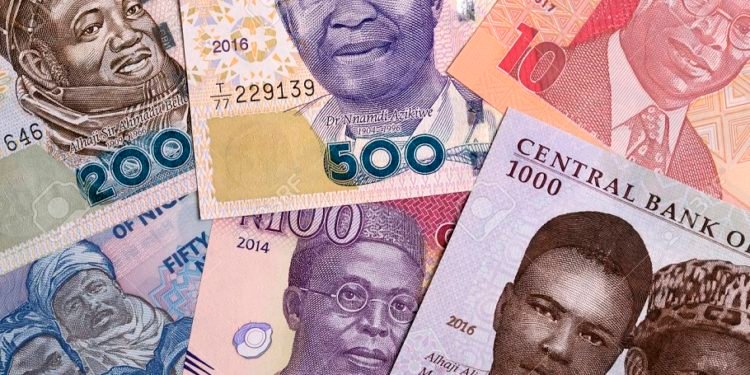The Value of the Naira appreciated against the U.S dollar at the Investors & Exporters (I&E) FX Window on Thursday.
Naira exchanged at N385.75 for $1 at the closing of the exchange on Thursday. This is a 0.45% rise in value compared to the opening rate of N387.50 per $1.
The Naira exchanged as high as N390.00/$1 and a low of N375/$1 on Thursday according to the data on FMDQ website.
A total of $12.45 million exchanged hands on Thursday at the I&E Window.
At the parallel market, popularly know as the black market, the value of the Naira remained unchanged at N450.00/$1 compared to it’s value on Wednesday according to abokiFX.
CBN official rate for the Naira stood at N361.00/$1 on Thursday, which is N1.00 higher than the N360 pegged by the CBN.
Five year Naira futures maturing on 26 Feb 2025 and 26 March 2025 exchanged at N567.22/$1 and N570.93/$1 at the I&E Window. This shows that investors are foreseeing that the Value of the Naira will greatly depreciate against the U.S dollar in 5 years.
- Read also; Oil Prices Fall as Investors Fear Second Wave of Infection
- Equity Investors Lost N16.9 billion as ASI Declined by 0.13%
Dollar scarcity has deeply affected the exchange market since March as a result of Covid-19 pandemic. However, CBN has been making efforts to improve availability of dollar.
According to the traders, last week CBN resumed dollar sales of about $100 million per week to local clients, although it is yet to sell to foreign-based investors.
The Central Bank of Nigeria (CBN) in March “technically devalued Naira” and also maintained it’s forex intervention in the foreign exchange market.
This technical devaluation saw the I&E window rate move from N360/$1 to N380.2/$1 while the official exchange rate moved from N306/$1 to N360/$1.
In his broadcast on Friday Morning, President Buhari said that the external reserve has grown from $33.42 billion on April 29th 2020 to about $36.00 billion in May, thus signifying that the Monetary Authority have enough Forex to finance seven months of import commitments.
Read further; Mitigating the risks in commodity export
This will undoubtedly relief pressure on the local currency, but the fact that there are still movement restrictions around the world over the covid-19 pandemic, the demand for Forex to finance imports is still low compared to pre-coronavirus times.
Written by
Ifunanya Ikueze





















































